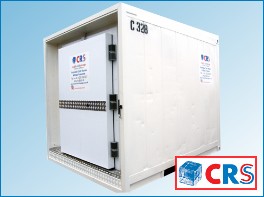What is Commercial Refrigeration Part 1
Commercial Refrigeration - A Worldwide Perspective
 In today's modern world, Commercial refrigeration is absolutely essential. We use it to preserve and protect food for people around the world to stop it from spoiling. A variety of commercial refrigeration processes are currently used in supermarkets and other retail food stores to aid in this process. These include central refrigeration systems connected to food display cases, newer designs, known as distributed systems, are also being used that place refrigeration compressors and associated components near the display cases that are being refrigerated and self- contained display cases and walk-in refrigerators and freezers.
In today's modern world, Commercial refrigeration is absolutely essential. We use it to preserve and protect food for people around the world to stop it from spoiling. A variety of commercial refrigeration processes are currently used in supermarkets and other retail food stores to aid in this process. These include central refrigeration systems connected to food display cases, newer designs, known as distributed systems, are also being used that place refrigeration compressors and associated components near the display cases that are being refrigerated and self- contained display cases and walk-in refrigerators and freezers.
There are also less obvious commercial refrigeration systems in which a primary refrigeration system cools a secondary fluid, which then circulates through a secondary circle to the display cases. In each case, the choice of refrigerant will depend on the specific requirements of the application.
Environmental Considerations for Commercial Refrigeration
Since the mid-1980s, we have all begun to understand the impact of commercial refrigeration systems on he environment. Because of this they have undergone a transition from using ozone depleting refrigerant compounds, including chlorofluorocarbons (CFCs), to low or non-ozone depleting compounds, such as hydrochlorofluorocarbons (HCFCs) and hydrofluorocarbons (HFCs). Ammonia, hydrocarbons and carbon dioxide are being used to a lesser extent. Currently they are expensive options. Scientists though are thinking that several of these compounds, while non-ozone depleting, actually do have global warming potential (GWP).
There are two empirical ideas regarding global warming that must be considered when selecting a refrigerant. One is obviously the GWP of the refrigerant compound itself if released into the atmosphere, this is known as the "direct effect." Another concerns the amount of energy needed to actually work the equipment, the "indirect effect." The two aspects considered together represent the most significant portions of Life Cycle Climate Performance, or LCCP. Significant additional considerations include the cost of the system and the safety of the users, service technicians and the public.
To find out more about commercial cold storage or temperature controlled storage solutions, visit cold storage specialists at www.crs.ie
Published on 15/02/2011














